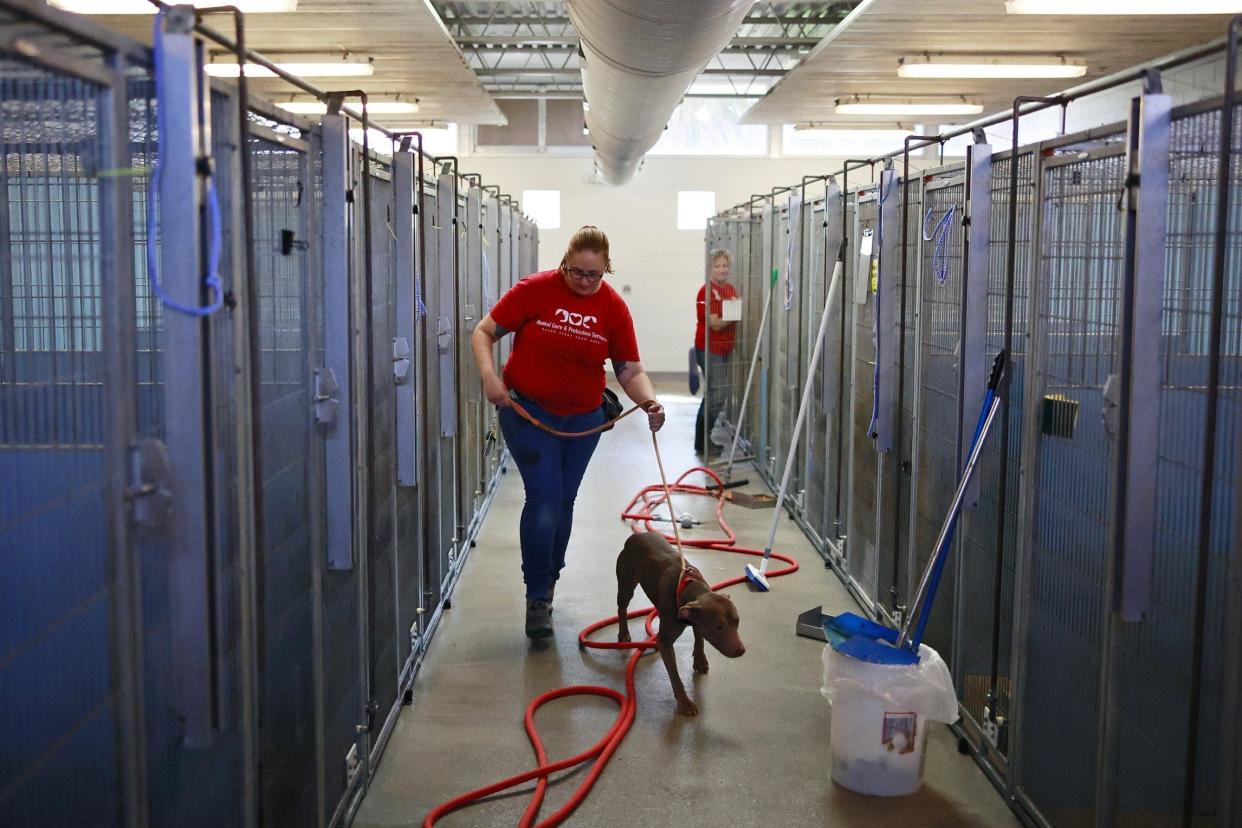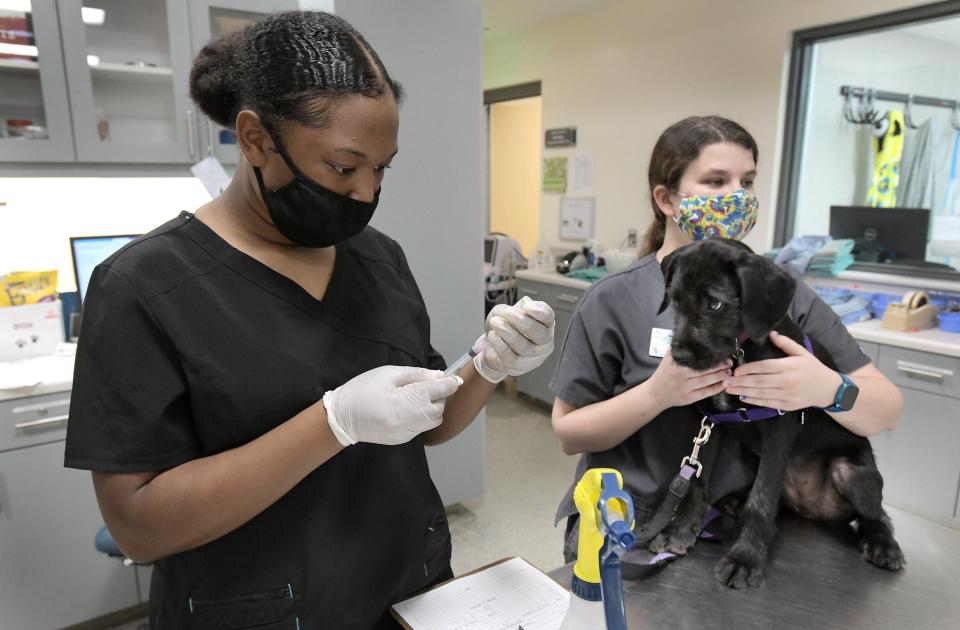Dog virus forces quarantine at Jacksonville animal shelter; strays won't be accepted

With one shelter dog testing positive for a contagious respiratory virus and a second showing mild symptoms, Jacksonville Animal Care and Protective Services has quarantined 130 other dogs, alerted recent adopters to potential exposure and restricted intake.
The shelter also is appealing for foster families and adopters to take in medium and large adoptable dogs — that may or may not have been exposed — for at least two weeks. They will be provided with all supplies and needed medical care.
"The body’s ability to fight illness is greatly compromised by stress, so dogs are best supported by being cared for outside of the shelter," according to the city.
'Perfect storm':Dire situation for full animal shelters in Jacksonville area and country
Where to board Fido?Jacksonville has many options, asking the right questions essential
Canine pneumovirus is not typically seen in the city shelter's dog population, with the last case in 2020, according to Animal Care officials. Symptoms are similar to other respiratory viruses and include coughing, sneezing and nasal discharge, which can progress to pneumonia or difficulty breathing.
"There is not a vaccine to protect dogs against pneumovirus, so preventing it from spreading to healthy dogs and eliminating it from the shelter is our priority," according to the agency.
The dog showing mild symptoms is being tested for the illness, and the quarantined dogs are being closely monitored for symptoms.
Canine pneumovirus is dog-specific, so it cannot affect humans or other pets.
Rare and complicated virus, highly contagious like kennel cough
In 2022 there have been increasing numbers of cases across South Florida, with a Miami-Dade city veterinarian advising dog owners to treat the virus like COVID-19 and keep their dogs separated from other dogs. Also, cases were reported at shelters in Pinellas, Hernando and Pasco counties.
The Jacksonville Humane Society, a private nonprofit shelter, has not had a canine pneumovirus case in at least the past 11 years, according to CEO Denise Deisler. But she remembered the 2020 scenario at the city shelter.
"They closed at that time for several months which then led right into the mandatory shutdown for COVID-19," she said. "It is highly contagious so containing it is important. In an already crowded shelter, the risk of spread is greater. They are handling it with an abundance of caution."

Canine pneumovirus has similar symptoms to kennel cough, which is common in shelters and requires outside lab testing to make a diagnosis.
"When we had several dogs with a cough a few weeks ago, we tested and all were negative for pneumo, but they did have kennel cough," Deisler said. "When the city had several with symptoms last week, ACPS asked us to send out the tests for them, we did, and one came back positive."
Any dog with the virus must be closely monitored to make sure pneumonia does not develop. If the dog also has other health issues, the virus "could evolve into something more serious ," she said.
"Otherwise they recover with little to no medical intervention," Deisler said. "It's sort of like people not knowing if they have the flu or a cold — similar symptoms, no real cure or treatment for either."
What's the situation for the next two weeks?
At the city shelter, the adoption center will remain open, but public access to dog housing areas will be limited. Also, for at least the next 14 days the shelter will not admit healthy stray dogs or owned dogs "that are not a threat to public safety," according to the release.
That temporary ban, based on recommendations from infectious disease experts, will "allow the shelter to isolate and quarantine the exposed population of dogs while minimizing the risk of healthy dogs being exposed," according to the agency. The length of the ban will depend on whether new cases are identified at the shelter.
Adopt a dog or cat: ‘No-kill’ status returns to Jacksonville animal shelters, 93 percent leave alive
Anyone who finds a lost dog, instead of taking it to the shelter, should work to find its home. Suggested methods include posting flyers in the area it was found, taking it to a vet to be scanned for an identifying microchip and posting on social media sites. If the dog is in danger or is a public safety risk, call (904) 630-CITY for shelter staff for an assessment.
The shelter is seeking out recent dog adopters to inform them of possible canine pneumovirus exposure and educate them about symptoms, possible medical care and how to keep their new dog away from other dogs.
bcravey@jacksonville.com, (904) 359-4109
JACKSONVILLE ANIMAL CARE AND PROTECTIVE SERVICES: CANINE PNEUMOVIRUS
Anyone who has adopted a dog from the city shelter in the last two weeks that has been coughing, sneezing or had discharge from the eyes or nose should contact the adoption center by emailing JaxPets@coj.net. For general questions about canine pneumovirus, email the same addres
This article originally appeared on Florida Times-Union: Canine pneumovirus in dog causes Jacksonville shelter quarantine

